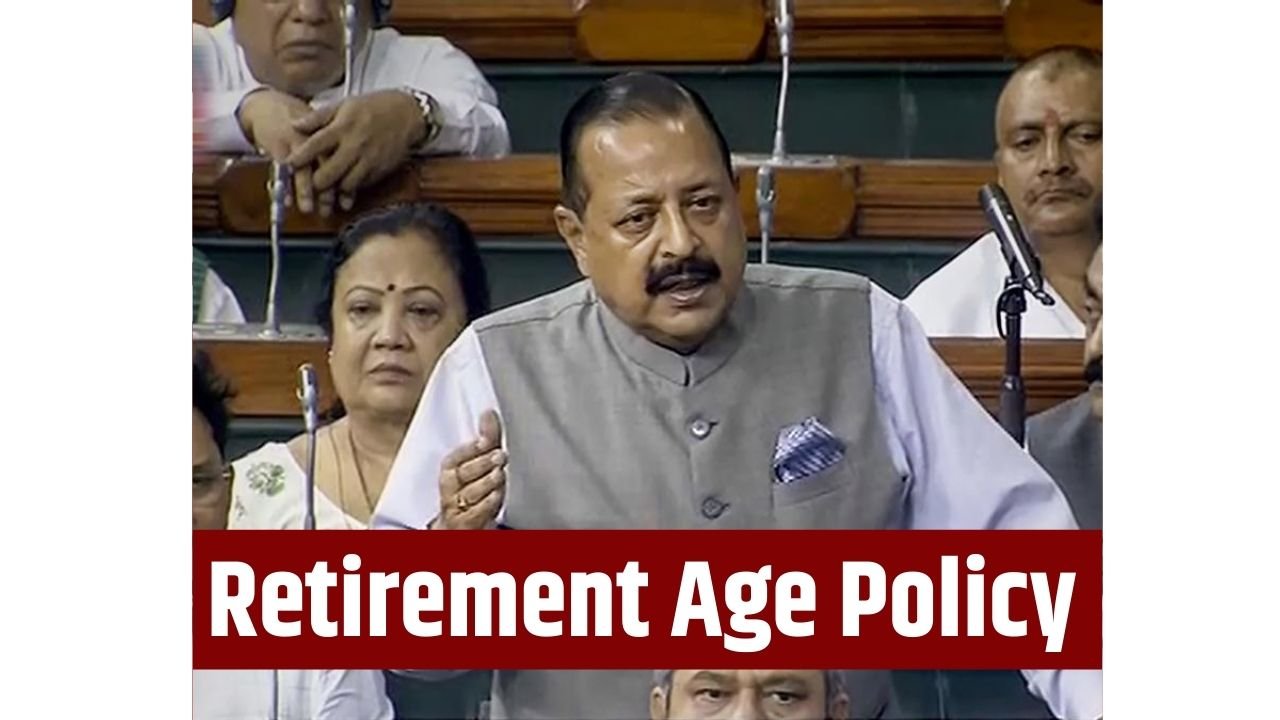Revised Retirement Age Policy for Government Employees: The central government has recently announced updates to the retirement age rules for its employees, aiming to optimize workforce management and adapt to evolving economic and demographic trends. These changes will significantly impact lakhs of government staff, influencing pension structures, career progression, and recruitment processes. Below is a detailed breakdown of the new retirement age policy and its broader implications.
Revised Retirement Age for Central Government Employees
The government has adjusted the retirement age for different employee categories to enhance productivity, retain expertise, and improve administrative efficiency. The standard retirement age remains 60 years for most central government employees. However, exceptions have been made for specialized roles, including doctors, scientists, and academic professionals, where the retirement age has been extended to 62–65 years.
A proposal to raise the general retirement age to 62 years is under review, particularly for non-pensionable positions. Additionally, performance-based extensions may be granted for high-skilled roles to ensure continuity in critical projects. State governments may adopt similar policies based on their administrative needs.
Category-Wise Retirement Age Adjustments
The revised retirement ages vary across different employee groups:
- General Central Government Employees: The retirement age remains unchanged at 60 years.
- Central Health Services Doctors: The limit has been increased from 62 to 65 years, effective from April 2025, to retain experienced medical professionals.
- Scientists (R&D Institutions): The retirement age has been extended from 60 to 62 years to support ongoing research and innovation.
- Teaching Faculty (Central Universities): The existing limit of 65 years has been retained.
- Judges (High Court/Supreme Court): A proposed increase from 62/65 to 65/67 years, pending parliamentary approval.
- IAS/IPS/IFS Officers: No change; retirement age remains 60 years.
- Defence Civilian Staff: The current limit of 60 years continues.
Implications of the New Policy
The revised retirement age rules bring both advantages and challenges:
Benefits
- Retention of Expertise: Highly skilled professionals in healthcare, research, and judiciary will continue contributing to their fields.
- Reduced Short-Term Pension Burden: Extended service periods may ease immediate pension liabilities.
- Project Continuity: Long-term initiatives will benefit from sustained leadership.
Concerns
- Delayed Promotions: Junior employees may face longer waiting periods for career advancement.
- Fewer Job Openings: New recruitment opportunities could decrease due to extended tenures.
- Performance Monitoring: Strict evaluations will be necessary to justify age extensions.
Performance-Based Retirement Provisions
To ensure efficiency, the government retains provisions for compulsory retirement under Fundamental Rule 56(j) and Rule 48 of CCS (Pension) Rules. Employees with 30 years of service or those aged 50 and above may be retired early if found underperforming or lacking integrity. Regular performance reviews will be conducted to maintain workforce productivity.
Impact on Pension and Post-Retirement Benefits
Extending the retirement age will influence pension calculations and retirement benefits:
- Pension Start Age: May shift from 60 to 62 years for certain categories.
- Monthly Pension Amount: Likely to increase due to higher last-drawn salaries.
- Gratuity & Leave Encashment: Extended service years will enhance payouts.
- NPS/EPF Contributions: Employees will contribute for additional years.
- Post-Retirement Health Benefits: CGHS coverage remains unaffected.
Future Proposals Under Consideration
Several reforms are being evaluated for future implementation:
- Raising the universal retirement age to 62 for all central employees.
- Linking retirement eligibility with performance and fitness assessments.
- Aligning retirement ages between state and central services.
- Adjusting NPS pension calculations for extended service periods.
State Governments’ Responses
States have varied reactions to the central policy:
- Uttar Pradesh & Karnataka: Likely to adopt similar changes.
- Maharashtra: Monitoring central guidelines before deciding.
- Tamil Nadu & Punjab: Currently retaining lower retirement ages (58 years) due to administrative or union opposition.
Conclusion
The revised retirement age policy reflects the government’s effort to balance experience retention and youth employment opportunities. While beneficial in specialized sectors, its broader impact on promotions and recruitment requires careful management. Employees are advised to refer to official circulars or consult their departmental HR for personalized guidance.
Note: The above details are based on current proposals and notifications. Final implementation may vary after official approvals.



